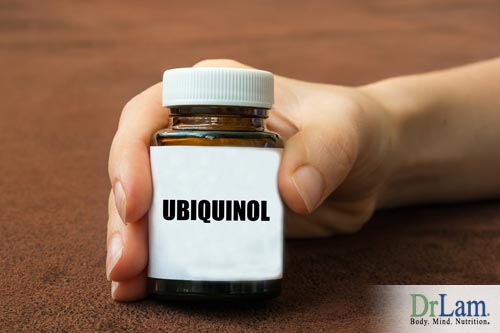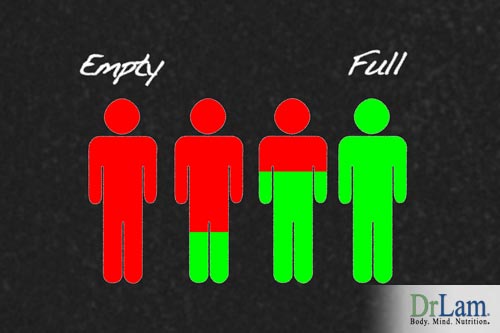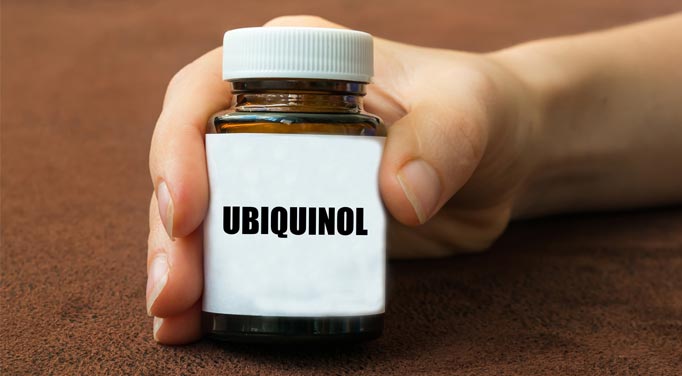 A: Let me give you the rundown. I hope it's not too technical, but since you ask, here it is. First, what is Ubiquinol? Ubiquinol is the reduced form of CoQ10. Ubiquinone is the oxidized form. The oxidized form is much more stable.
A: Let me give you the rundown. I hope it's not too technical, but since you ask, here it is. First, what is Ubiquinol? Ubiquinol is the reduced form of CoQ10. Ubiquinone is the oxidized form. The oxidized form is much more stable.
Your body utilizes both oxidized and reduced form. In the reduced form, CoQ10 circulates in the cells and acts as an antioxidant. In the oxidized form, it acts as an electron donor in the production of mitochondria in the cell. During cellular reparation/production of energy, free radicals are created, so it's hypothesized that the reduced CoQ10 acts as your body's natural defense of oxidants created from energy production.
The marketers of reduced CoQ10 say its better, its absorbed better, etc. the data cited uses rats. There is no evidence or research that the reduced form is absorbed any better than the oxidized form. The main point for absorption is that it must be crystal free, and CoQ10 is absorbed better with other lipid carriers (flaxseed, and monoglyceride has been found to be the best carrier for CoQ10 absorption). Liposomal encapsulation technology has drastically enhanced absorption rate of CoQ10. Liposomes are phospholipid bilayers that encase CoQ10 in a lipid shell, ensuring maximum absorption into the body. It all comes down to the carrier.
The other thing is that your body will convert reduced to oxidized CoQ10 and vice versa as it needs. So even if you absorb the CoQ10 in reduced form, your body will turn it to oxidize when it needs it for energy production. And if you absorb in oxidized form, your body will reduce it as it circulates in the body.
Also, because the reduced form of CoQ10 is very unstable, CoQ10 experts question whether the CoQ10 stays in the reduced form when the soft gel releases in the stomach. So it may actually oxidize in the stomach and be absorbed as oxidized anyways.
The bottom-line for CoQ10 comes down to the carrier and thus absorption and not whether it is oxidized or reduced. No matter what form your body absorbs, your body will convert the CoQ10 to the form it needs.
The question of what is Ubiquinol can best be answered by first discussing how stress affects the body and can lead to Adrenal Fatigue. Stress of any kind activates the body’s systems to fight against the effects of that stress. One of the major difficulties that may happen in states of continuing stress is a depletion of the adrenal glands that secrete cortisol to fight the effects of stress. This condition is called Adrenal Fatigue Syndrome. When this happens, many of the vitamins and minerals needed by the body are no longer absorbed adequately. This condition can lead to serious physical symptoms.
Traditional physicians approach these symptoms individually, rather than focusing on the entire body as a set of interconnected systems. This viewpoint doesn’t address how the symptoms affecting any one system of the body affects all the others as well. However, the NeuroEndoMetabolic (NEM) model considers all functional systems when treating symptoms of adrenal fatigue. When Ubiquinol is discussed, the metabolic systems are most in consideration. This metabolic system must function appropriately for the body to get the right kind and amount of fuel needed to work well. Ubiquinol is one of those compounds needed by the body to function adequately, especially in the mitochondria where energy production is at stake.
 When your body is fighting stress and has reached the point of adrenal fatigue, any blood tests you have done may show you to be within minimal levels of Ubiquinol and other vitamins and minerals. But you still may have symptoms. That’s because your body doesn’t need just the minimum levels of these nutrients, but optimal levels.
When your body is fighting stress and has reached the point of adrenal fatigue, any blood tests you have done may show you to be within minimal levels of Ubiquinol and other vitamins and minerals. But you still may have symptoms. That’s because your body doesn’t need just the minimum levels of these nutrients, but optimal levels.
This is the time for you to consider taking really good quality supplements. The right combination of supplements along with good diet and other adjustments in your lifestyle can help you in your efforts to recover from the effects of stress and Adrenal Fatigue.
The biggest benefit you’ll realize from adding Ubiquinol to your food intake may be an increase in endurance and recovery time. Dealing with stress requires a lot of energy. Increasing Ubiquinol intake in the form of CoQ10 will give you body needed fuel to keep your cells operating optimally. Ubiquinol also functions as an antioxidant, decreasing the effects of harmful free radicals on your body. At some levels, Ubiquinol can produce side effects. Insomnia, rashes, nausea, dizziness, and headache have been reported. Unfortunately, this increase in energy may be too stimulating for some AFS sufferers, especially those in advanced stages. The weaker the body, the greater the risk. Always consult your physician before embarking on a self navigation program in such cases.

